Search
Remove Ads
Advertisement
Summary 
Loading AI-generated summary based on World History Encyclopedia articles ...
Search Results
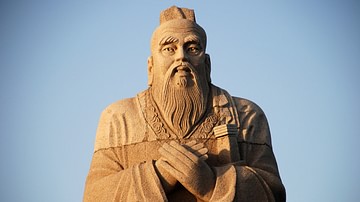
Definition
Confucius
Confucius (Kongzi) was a 6th century BCE Chinese philosopher. His thoughts, expressed in the philosophy of Confucianism, have influenced Chinese culture right up to the present day. Confucius is a larger than life figure and it is difficult...
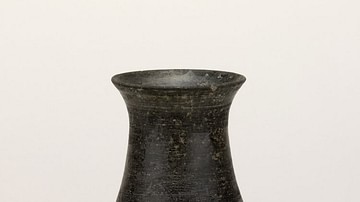
Definition
Longshan Culture
The Longshan culture (aka Lung-shan) flourished in parts of late Neolithic northeast China during the third millennium BCE and was an important link in the development of Chinese civilisation from the independent neolithic communities to...

Definition
Jang Bogo
Jang Bogo (aka Chang Pogo or Gungbok) was a powerful Korean warlord, naval commander, and merchant who came to monopolise maritime trade in northeast Asia to such a degree that he was known as the 'King of the Yellow Sea' during the first...
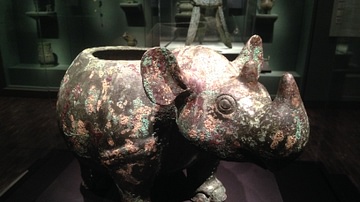
Image
Bronze Ritual Vessel in the Shape of a Rhinoceros
This bronze ritual vessel dates to 1100 – 1050 BCE (Shang Dynasty period). Unearthed in Liangshan, Shandong, the vessel, likely used to hold wine or food, is notable for its differences from other bronze ritual vessels of its time. Few...

Video
Temple and Cemetery of Confucius and the Kong Family ... (UNESCO/NHK)
The temple, cemetery and family mansion of Confucius, the great philosopher, politician and educator of the 6th–5th centuries B.C., are located at Qufu, in Shandong Province. Built to commemorate him in 478 B.C., the temple has been destroyed...
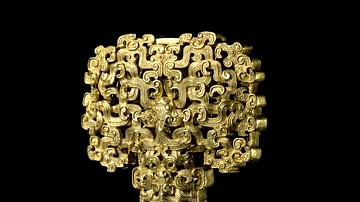
Definition
Zhou Dynasty
The Zhou Dynasty (1046-256 BCE) was among the most culturally significant of the early Chinese dynasties and the longest lasting of any in China's history, divided into two periods: Western Zhou (1046-771 BCE) and Eastern Zhou (771-256 BCE...
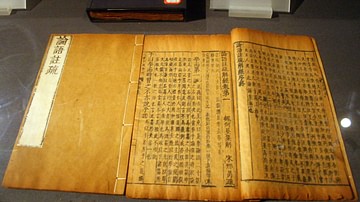
Definition
Confucianism
Confucianism is a philosophy developed in 6th-century BCE China, which is considered by some a secular-humanist belief system, by some a religion, and by others a social code. The broad range of subjects touched on by Confucianism lends itself...
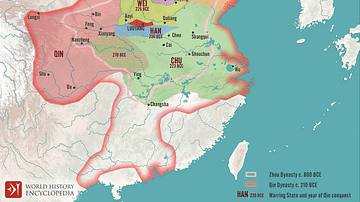
Definition
Warring States Period
The Warring States period (481/403 BCE - 221 BCE) describes the three centuries when various rival Chinese states battled viciously for territorial advantage and dominance. Ultimately the Qin state was victorious and established the first...
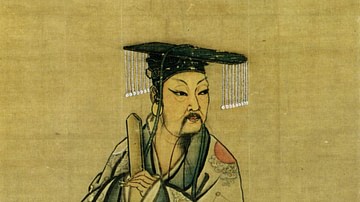
Definition
Xia Dynasty
The Xia Dynasty (c. 2070-1600 BCE) was the first government to emerge in ancient China and the first to adopt the policy of dynastic succession. Consequently, the Xia was the first dynasty of China. Long regarded as a mythical construct of...

Definition
Treaty of Versailles
The Treaty of Versailles, signed in June 1919, was an agreement between the victors of the First World War (1914-18) which redivided parts of Europe and imposed reparations, armament limitations, and total blame for the war on Germany, one...